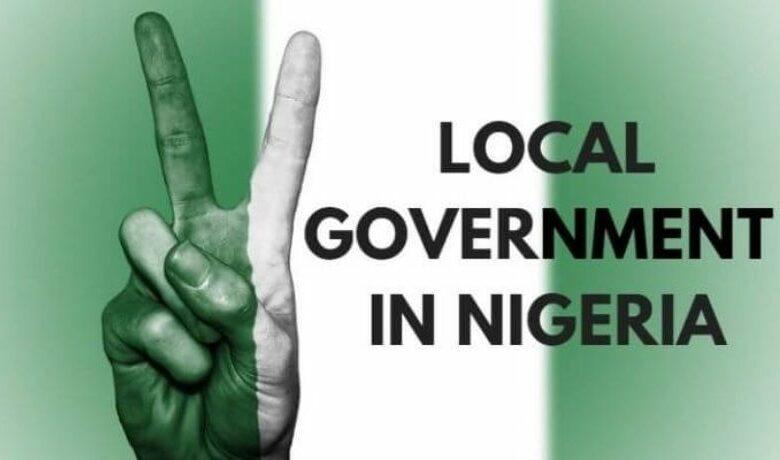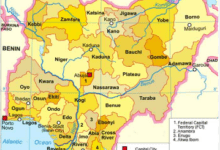
11 Factors Affecting Local Government Finance in Nigeria
Factors Affecting Local Government Finance in Nigeria – Local government finance in Nigeria refers to all activities that surround the financial management and funding of local government services and programs in Nigeria. The government in Nigeria is divided into three tiers. These are the federal, state, and local. The local government is the tier closest to the people. It is responsible for providing services such as the management of toxic wastes, road maintenance, and also providing education at the primary level. Generally, the local governments in Nigeria rely on revenue from the allocation from the federation account and Internally Generated Revenue (IGR) to fund their activities. Factors Affecting Local Government Finance in Nigeria
However, just as any other tier of government, the local government in Nigeria also faces several challenges such as a dearth of revenue, excess dependence on state government, lack of autonomy, and many others. For Nigeria to experience sustained progress, these challenges must be addressed. This is because any achievement at the grass root level will rub over on the overall growth and development of the nation.
👉 Relocate to Canada Today!
Live, Study and Work in Canada. No Payment is Required! Hurry Now click here to Apply >> Immigrate to CanadaRead Also: 10 Factors Affecting Maternal and Child Health in Nigeria
What is Local Government?
In simple terms, the concept of local government implies government at the grass root level. This means the government which is closest to the people. The local government is the most crucial level of government because it entails direct dealings with the citizens of a particular state.
Also, the local government can be described as a formal organization, set up by the law to perform certain functions as detailed in the constitution. Any state aspiring for growth and development must ensure that its power and authority are properly decentralized to this lowest tier of government so that the interest of individuals at the grass root level can be accommodated.
Functions Of Local Government In Nigeria
Some functions of the local government in Nigeria are outlined below. Information Guide Nigeria
- Provision of Basic Services: The local government in Nigeria provides basic services such as fire protection, sewage management, primary education, and water supply amongst others.
- Building and Maintenance of Infrastructure: The provision and maintenance of infrastructure such as public transportation, roads and bridges, parks, libraries, and community centers are a function of the local government. Duties of a Housekeeper
- Administration of Welfare Programs: The local government also administers social welfare programs such as housing assistance to the citizens. Information Guide Nigeria
- Promotion of Economic Activity: The development of several infrastructures by the local government tends to accelerate economic development. This is achieved because foreign investors will be drawn to such local governments. JAMB Portal
Read Also: 10 Factors Affecting Democracy In Nigeria
What Does Local Government Finance Mean?
Local government finance is the administration and funding of local government programs through the collection of revenue and disbursement to various departments. These include the collection of revenue and allocation of funds to various departments. Generally, the main source of revenue for local governments is the federal allocation and its internally generated revenue which it generates internally. Such internal revenue includes taxes, fees, and other charges and fines.
The Need for Local Government Finance
Local government finance is important for the following reasons.
- Provision of Important Social Services: Local government finance is vital for funding the services that are crucial to the daily lives of citizens, such as police, fire protection, and management of waste.
- Promotion of Economic Development: Local government finance is a key player in promoting economic development by financing infrastructure projects, supporting small and medium-scale businesses, and also attracts new investments to the area. NYSC Portal
- Ensuring a Structure of Accountability: Local government finance ensures accountability by allowing citizens to have an understanding of how their taxes are being used and it also provides a mechanism for transparency.
Read Also: 10 Environmental Factors in Nigeria
👉 Relocate to Canada Today!
Live, Study and Work in Canada. No Payment is Required! Hurry Now click here to Apply >> Immigrate to CanadaMajor Sources Of Revenue For The Local Government
There are several sources of revenue for the local government in Nigeria. Some of them include;
- Disbursement From The Federation Account: In Nigeria, Local governments receive a certain percentage of the revenue generated by the federal government, and this percentage is allocated and disbursed through the federation account. Romantic Love Messages
- Revenue Generated Internally: Local governments in Nigeria also raise revenue through their sources, such as taxes, fees, fines, and other charges. These include taxes on businesses, fees for permits, and some other charges for services such as waste collection, and sewage disposal and treatment.
- Revenue From Grants And Loans: In some cases, Local governments in Nigeria may also receive grants and loans from the federal or state government, Also, international organizations may also send funds to local government for specific programs.
- Revenue From Investment Income: Local governments in Nigeria also earn income from investments, such as interest on deposits or returns on stocks and bonds. Romantic Love Messages
- Non-Tax Revenue Sources: Local governments in Nigeria also collect non-tax revenue such as fines, and charges for services provided by the council like permits, market tolls, rents, and rates.
Read Also: 10 Factors Affecting Labor Market in Nigeria
Factors Affecting Local Government Finance in Nigeria
There are several factors affecting local government finance in Nigeria. Ten such factors are found below:
- Lack of Sufficient Revenue: Local governments in Nigeria often struggle to raise sufficient revenue to meet the needs of their communities. This can be caused by a lack of efficient taxation systems or a lack of independence in determining the tax rates.Good Morning Love Message
- Over Dependence on State Government: The finances of Local government in Nigeria are often overly dependent on the state government. This results in a limitation in their ability to provide essential services and respond to the various needs of their citizens. Good Morning Love Message
- Presence of Corruption: Corruption remains a major cankerworm that eats deep into the fabric of the local government system in Nigeria. This has ultimately led to the mismanagement of funds and vital resources.
- Insufficient Infrastructure: Inadequate infrastructure and lack of essential services can make it difficult for local governments to thrive, raise revenue, attract foreign investment, and provide basic services to their communities.
- Improper Financial Planning, Budgeting, and Utilization of Resources: Local government finance in Nigeria is also plagued by a lack of the needed skills and capacity to plan and make an effective budget. This leads to poor financial administration and inefficiency in the use of limited resources. NYSC Portal
- Lack of Sufficient Access to Credit Markets: Local government finance in Nigeria often suffers from limited access to credit markets and this inhibits their ability to invest heavily in infrastructure and efficient service delivery.
- Restricted Access to Capital Market: Local government finance in Nigeria often has limited access to capital markets. As an effect, their ability to source long-term funds for infrastructure development is restricted.
- Inadequate Technical Expertise: Local government councils in Nigeria often lack access to sufficient technical expertise which can limit their ability to plan and manage their finances properly for optimum performance.
- Lack Of Robust Legal Framework: The legal framework for local government finance in Nigeria is mostly inadequate, and this is a major hindrance to the success of local government finance in terms of sourcing, and managing resources effectively.
- Absence Of Transparency Among Local Government Officials: Local government finance in Nigeria is mostly characterized by a lack of transparency and accountability in their financial management. This challenge is a smaller version of the general umbrella of corruption which bedevils the country as a whole. It causes the public to lose trust in the government.
- Global Economic Downturn: Economic downturns globally can also affect the ability of local governments to raise revenue and meet the basic needs of their communities. This is because major sources of revenue for the local government will be affected if there is a general economic depression. JAMB Portal
Read Also: 10 Factors Affecting Immunization In Nigeria
CONCLUSION
In Nigeria, local government finance is concerned with the allocation of funds from the federal government to the country’s 774 local government areas These funds are disbursed through the Joint Accounts Allocation Committee (JAAC). This committee comprises representatives from the local, state, and federal governments. In addition, there are also revenue-raising efforts at the local level, such as taxes and fees charged on markets and businesses, as well as fees for services like sewage and waste management. Generally, the financial situation of local governments in Nigeria is often considered to be underdeveloped and in need of reform, hence, continuous efforts to reform the local government finance system in Nigeria are still ongoing.
Check JAMB RESULT
Check and Confirm: How much is Dollar to Naira



